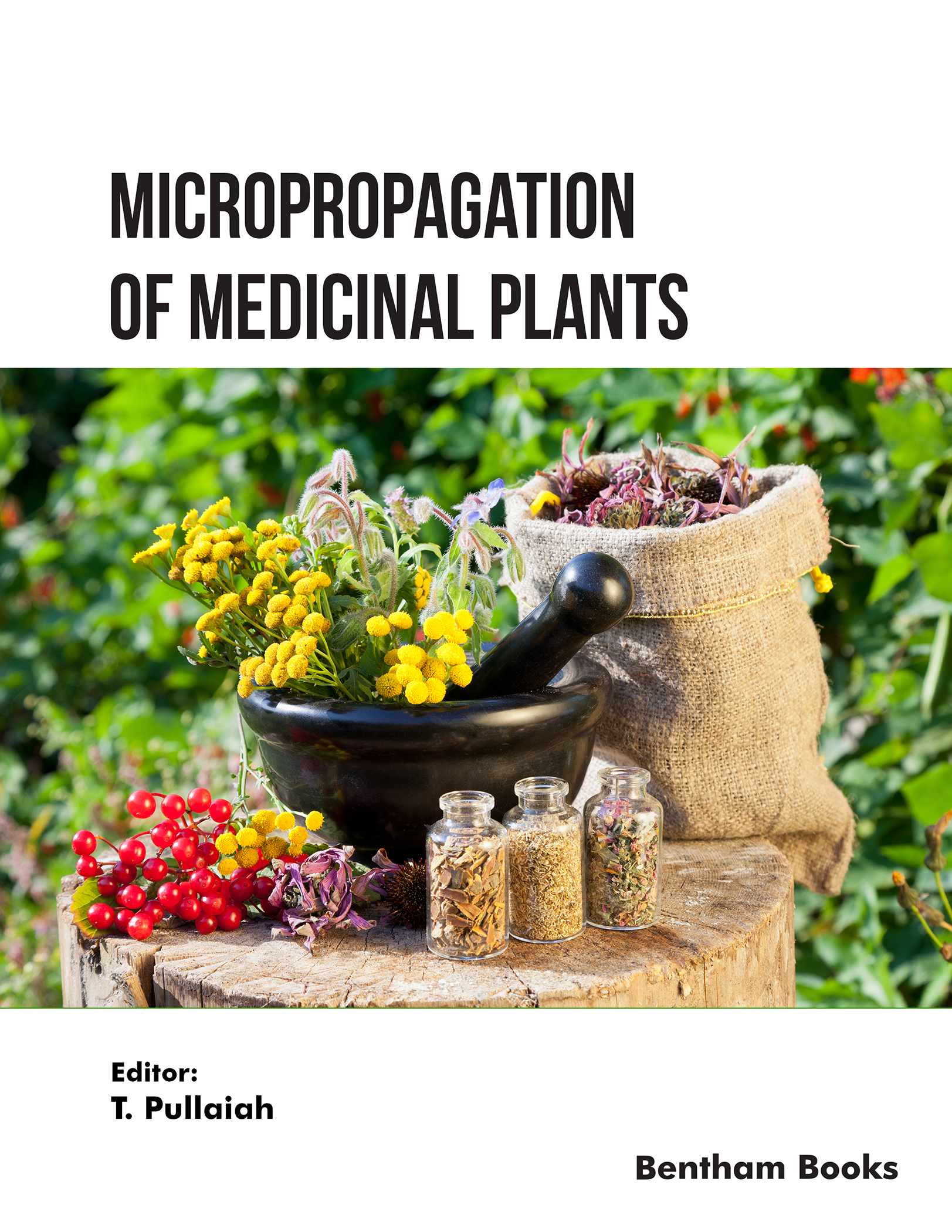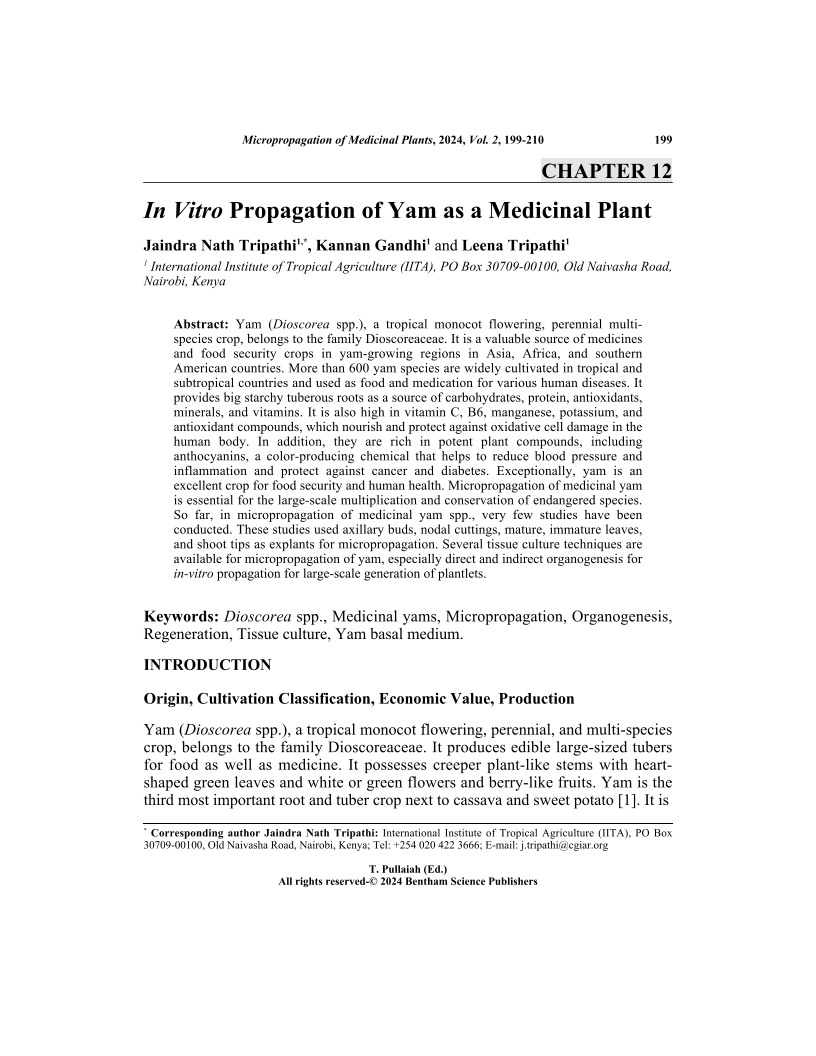In Vitro Propagation of Yam as a Medicinal Plant

- Authors: Jaindra Nath Tripathi1, Kannan Gandhi2, Leena Tripathi3
-
View Affiliations Hide Affiliations1 International Institute of Tropical Agriculture (IITA), PO Box 30709 00100, Old Naivasha Road, Nairobi, Kenya 2 International Institute of Tropical Agriculture (IITA), PO Box 30709-00100, Old Naivasha Road, Nairobi, Kenya 3 International Institute of Tropical Agriculture (IITA), PO Box 30709-00100, Old Naivasha Road, Nairobi, Kenya
- Source: Micropropagation of Medicinal Plants , pp 199-210
- Publication Date: March 2024
- Language: English
In Vitro Propagation of Yam as a Medicinal Plant, Page 1 of 1
< Previous page | Next page > /docserver/preview/fulltext/9789815238303/chapter-12-1.gif
Yam (Dioscorea spp.), a tropical monocot flowering, perennial multispecies crop, belongs to the family Dioscoreaceae. It is a valuable source of medicines and food security crops in yam-growing regions in Asia, Africa, and southern American countries. More than 600 yam species are widely cultivated in tropical and subtropical countries and used as food and medication for various human diseases. It provides big starchy tuberous roots as a source of carbohydrates, protein, antioxidants, minerals, and vitamins. It is also high in vitamin C, B6, manganese, potassium, and antioxidant compounds, which nourish and protect against oxidative cell damage in the human body. In addition, they are rich in potent plant compounds, including anthocyanins, a color-producing chemical that helps to reduce blood pressure and inflammation and protect against cancer and diabetes. Exceptionally, yam is an excellent crop for food security and human health. Micropropagation of medicinal yam is essential for the large-scale multiplication and conservation of endangered species. So far, in micropropagation of medicinal yam spp., very few studies have been conducted. These studies used axillary buds, nodal cuttings, mature, immature leaves, and shoot tips as explants for micropropagation. Several tissue culture techniques are available for micropropagation of yam, especially direct and indirect organogenesis for in-vitro propagation for large-scale generation of plantlets.
-
From This Site
/content/books/9789815238303.chapter-12dcterms_subject,pub_keyword-contentType:Journal -contentType:Figure -contentType:Table -contentType:SupplementaryData105

